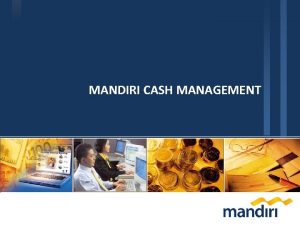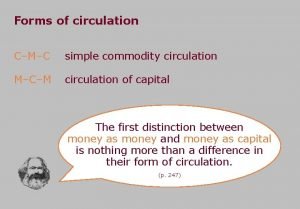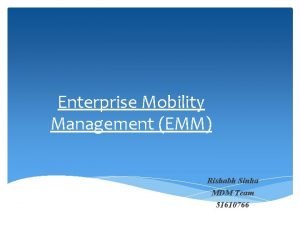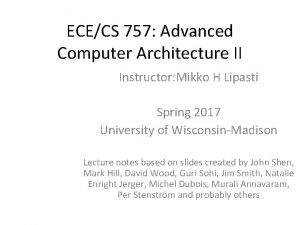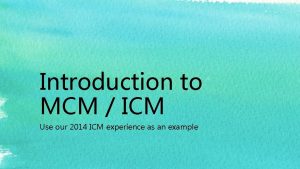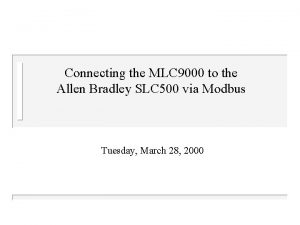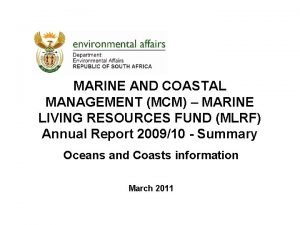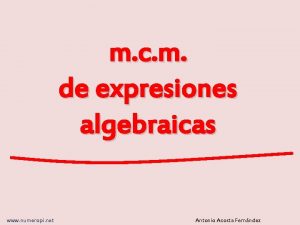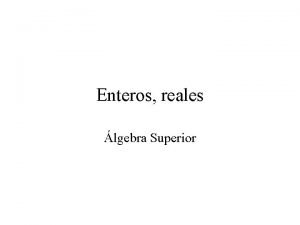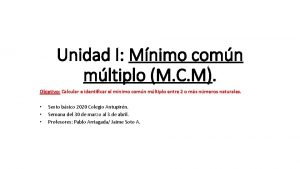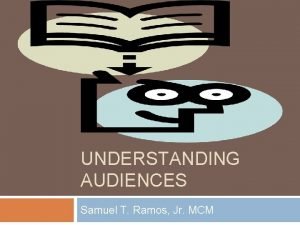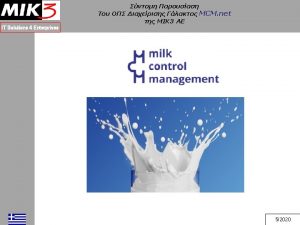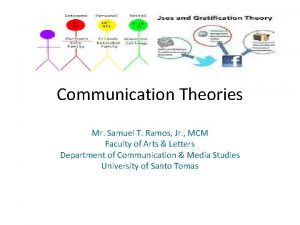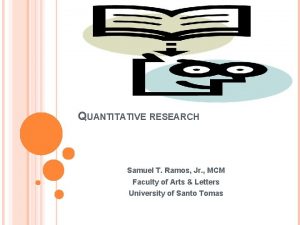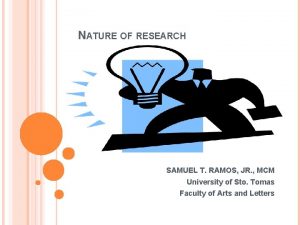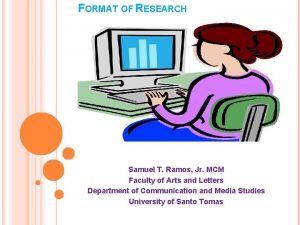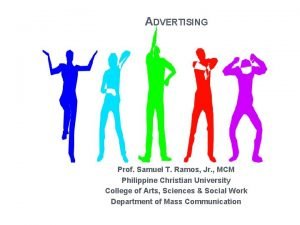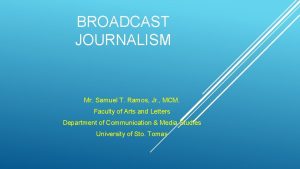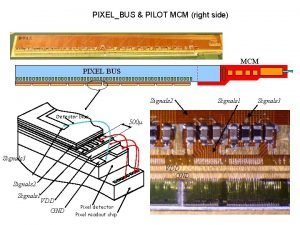COMMUNICATION RESEARCH STRATEGIES Samuel T Ramos Jr MCM














- Slides: 14

COMMUNICATION RESEARCH STRATEGIES Samuel T. Ramos, Jr. , MCM University of Santo Tomas Faculty of Arts & Letters

STUDYING COMMUNICATION Why study Communication? Those who will do will tell you that their work is driven by a need to know more about human interaction and the process of communication. Communication professionals need to develop skills for acquiring and using information throughout their professional lives. As students of communication, you will need to be prepared to investigate and engage in academic and professional growth activities in the future.

RESEARCH It is often defined as systematic inquiry into a subject. The key word in this definition, systematic, points to the need to examine topics methodically rather than to plunge haphazardly into sources. Two of our major goals in this research are to acquaint you with this step-by-step procedure of inquiry and to provide guidance for following these generally accepted principles and practices of research.

THE COMMUNICATION DISCIPLINE Communication has been defined in a variety of ways. Here, we define communication as a process by which people arrive at shared meanings through the interchange of messages. When people create and manage meanings and share their understanding of social reality, many things become communication events. Political scientists, educators, business executives, linguists, poets, philosophers, scientists, historians, psychologists, sociologists and anthropologists.

Communication researchers examine the processes by which meanings are created and managed—in other words, how people structure and interpret messages and use symbols such as language in several contexts: interpersonal, group, organizational, public, intercultural, and mediated. Thus, the breadth of communication inquiry is universal and inclusive, and the contexts in which the communication process is examined are diverse, yet interrelated. It is little wonder that no other discipline of knowledge is quite as universal as communication.

Communication is a time-honoured and yet modern discipline. The Greek philosopher Aristotle (384322 B. C. ) devoted much thought to examining the constituent elements of rhetoric, or the available means of persuasion. From 1600 through the early 1900 s, speech theorists focused on effective delivery of the spoken word. Early students of mass communication were intrigued by the effects of media-delivered messages. Contemporary communication researchers also expanded their interests to that occur during communication. In examining the flow of information and the interchange of messages between individuals in a variety of contexts, researchers today also probe the uses and effects of modern communication technologies.

SOURCES FOR THE HISTORY OF COMMUNICATION Benson T. W. (1985) Speech communication in the 20 th century. Southern Illinois University Press. Cohen, H. (1994) The history of speech communication. National Communication Association Crowley, D (1991) Communication in history, New York Delia J. G. (1987) Communication research, Sage Rogers, E. M. (1994) A history of communication study New York Free Press. Schramm, W. (1988) The story of human communication. Harper & Row.

STRUCTURE OF THE DISCIPLINE Group communication Health communication Instructional communication Intercultural/international communication Interpersonal communication Language and symbolic codes Mass communication New communication technologies Organizational communication Public communication

COMMUNICATION RESEARCH PROJECTS Compiling bibliographies Completing take-home exams Conducting audience or consumer surveys Conducting original research investigations Giving speeches or oral readings Investigating and writing news stories Leading seminars Preparing advertising or public relations campaigns Preparing debate cases or group discussions Writing television, radio, or film scripts, or critiques Writing term papers, seminar papers, or literature reviews.

ACADEMIC PURSUITS Preparing a term paper, literature review, research study, or thesis or dissertation prospectus requires extended use of the communication literature and the library. Also, students often conduct their own research investigations, in which research questions are asked, a study is designed, and data are collected analysed. The projects require you to examine and understand past research in the area so that you determine what important communication problems still need to be addressed.

PROFESSIONAL PURSUITS Film critics search past films reviews for references to particular directors. Public relations specialists consult directories for names and addresses of organizations. Television producers check current statistical sources to ascertain that a documentary is current. Communication consultants use abstracts and indexes to learn about new teaching or training methods. Advertising or media researchers search scholarly studies for relevant communication research. Political speech writers examine collections of speeches and editorials for themes and issues. Journalists check grammatical usage or news style by consulting a wire service handbook. Professors keep abreast of the field by reading professional and scholarly periodicals.

SUMMARY Communication research, like all research, must be systematic to be effective. Communication researches study the processes through which meaning and social reality are created and managed. Researchers examine the flow of information and the interchange of messages between individuals in several contexts. Although the study of communication is broad based and interdisciplinary, the field can be divided into several major areas of focus. Scholarly and professional communication association publish scholarly journals and trade magazines, organize conventions and conferences, and produce materials and newsletters to keep their members informed.

Students can become active in these associations while they are still in college. These associations help both students and professionals in accomplishing their academic and professional pursuits. For example, students complete a variety of assignments in their classes, which differ in scope, purpose, audience, and goal.

EXERCISE Describe two situations in your anticipated career that would require you to have knowledge of communication research. To help, speak to a professional in the area and ask about communication research in that profession.

